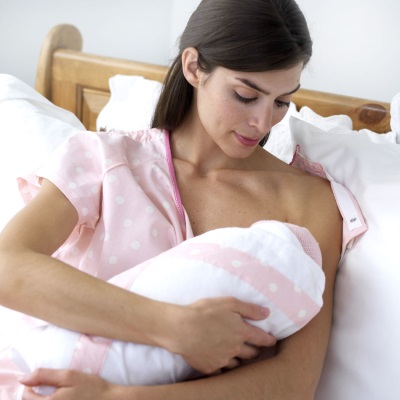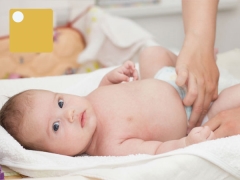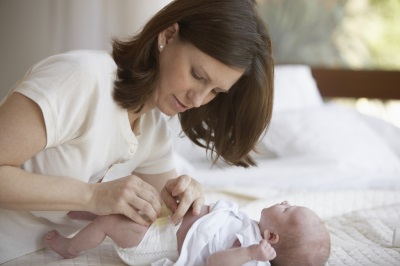Diarrhea with foam in infants
Rapid stool in an infant causes concern to parents. If diarrhea was short-lived, then most likely it was caused by overeating or poor-quality food. However, diarrhea is often delayed, and various impurities appear in the stool. What can foam in the baby’s feces testify to and what should parents do?
What does it look like?
Diarrhea is called a rapid chair, when a child poops more than 8 times a day. If foam appears in watery or mushy feces, then such diarrhea is considered frothy.
Possible reasons
- Foamy diarrhea may indicate an infection, especially if the child has weakness, fever, vomiting, and other symptoms of infection, in addition to the rapid, liquid stool.
- Artificial children can react with foamy liquid excrement to a new mixture or to the early introduction of complementary foods.
- Also, the cause of the foam stool are drugs taken either by the mother or the crumbs.
- This type of feces occurs with lactase deficiency. Not split milk sugar enters the colon and begins to be processed by bacteria with the release of gases, which ultimately looks like foamy liquefied feces.
- Foamy diarrhea is also characteristic of celiac disease. With this disease in the body of the baby there are no enzymes that break down gluten protein.
- Stool foaminess is possible with dysbacteriosis, for example, caused by taking antibiotics, as well as allergic lesions of the digestive tract.
- More worsening invasions, chronic gastrointestinal diseases and other problems can lead to frothy diarrhea.
Liquid feces with foam can be observed in infants who are fed mainly by the front women's milk. Lacking more fatty milk from the back of the breast, the baby poops with foamy and greenish stools, and also suffers from colic.

When should I call a doctor?
The baby must be examined by a doctor in the following cases:
- The child has a fever and vomiting.
- Blood particles appeared in the foamy feces.
- Baby poops often 8-12 times a day.
- The crumb does not gain weight or the baby's weight decreases.
How to treat?
Single cases Foamy diarrhea should not cause concern to parents, as they often indicate changes in the diet of a nursing mother or the child itself.
If you often notice an admixture of foam in the liquid stool of the baby, to treat the child yourself is not worth it. Refer to the experts who will be able to determine the cause, prescribe the desired diet and the necessary crumbs of medicine.
In turn, the nursing mother should reconsider her own diet by removing carbonated drinks, legumes, cabbage, and other foods from the menu that cause gas to form in the intestines. It is also important to establish feeding, so that the child receives both front and back milk from each breast.











